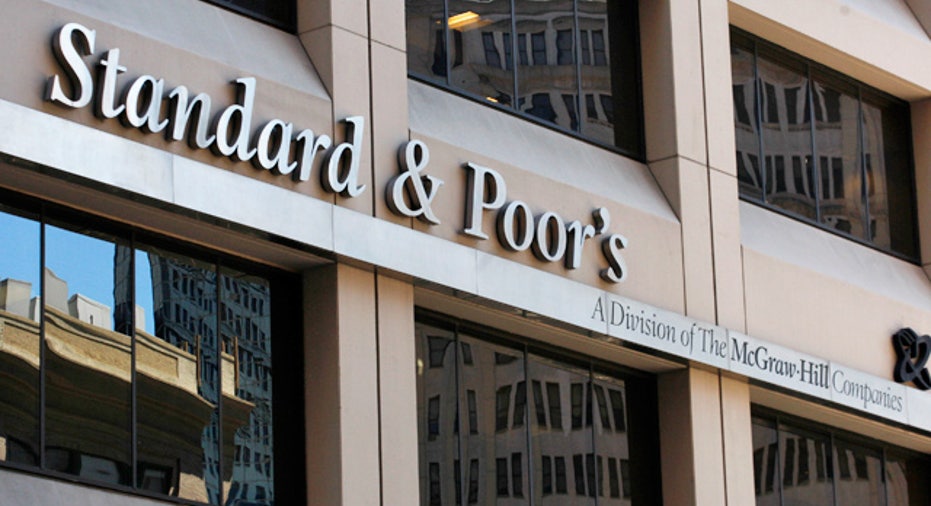S&P Puts U.S. on Negative Watch

Ratings agency Standard & Poor's has warned there is a one-in-two chance it could cut the United States' prized triple-A rating if a deal on raising the government's debt ceiling is not agreed soon.
Putting the U.S. on negative watch, S&P warned that it could cut the rating as soon as this month if talks between the White House and Republicans remain stalemated. Any cut would be by one or more notches, it added.
"Today's CreditWatch placement signals our view that, owing to the dynamics of the political debate on the debt ceiling, there is at least a one-in-two likelihood that we could lower the long-term rating on the U.S. within the next 90 days," the agency said in a statement.
The S&P warning comes just a day after Moody's Investors Service warned the U.S. may lose its top-notch credit rating in the next few weeks if lawmakers fail to increase the country's legal borrowing limit and the government misses debt payments.
The deadline to raise the ceiling is on August 2.
"We have also placed our short-term rating on the U.S. on CreditWatch negative, reflecting our view that the current situation presents such significant uncertainty to the U.S.' creditworthiness," S&P said.
Republicans rejected a deal at a White House meeting on Thursday that would have included a payroll tax-cut extension and a number of tax breaks for certain business sectors, a Democratic aide said.
President Barack Obama had offered a spending cut of $2 trillion for the coming fiscal year in White House budget talks, but that was far below the level sought by Republicans, Senate Republican Leader Mitch McConnell said on Thursday.
So protracted has been the wrangling over the budget that S&P warned that even if there was a deal done on raising the ceiling, it might still cut the rating if it was not convinced it would stabilize the country's medium-term debt dynamics.
"If an agreement is reached, but we do not believe that it likely will stabilize the U.S.' debt dynamics, we, again all other things unchanged, would expect to lower the long-term 'AAA' rating, affirm the 'A-1+' short-term rating, and assign a negative outlook on the long-term rating," said S&P.
The market reaction in Asia was strangely muted, perhaps because Moody's had already raised the possibility of a downgrade. Dealers said the market might also be hoping that the pressure from the agencies would jolt U.S. lawmakers into doing a deal.
"It's eerily quiet so far," said a trader at a local bank in Sydney. "People are counting on sanity breaking out in the U.S. -- the idea of default is just too scary to contemplate."
As a result, Treasury prices dipped only modestly, lifting 10-year yields to 2.97 percent, from 2.92 percent late in New York on Thursday.
The euro was holding in a tight range around $1.4255 in Asia, having earlier edged up from an overnight low of $1.4115. The dollar eased slightly to 79.04 yen and slipped back to 0.8148 Swiss francs, uncomfortably close to its record low of 0.8080.
Dealers added that the market was wary of buying the euro ahead of the result of Europe-wide stress tests on 90 banks due later Friday which could force some to seek state aid.



















